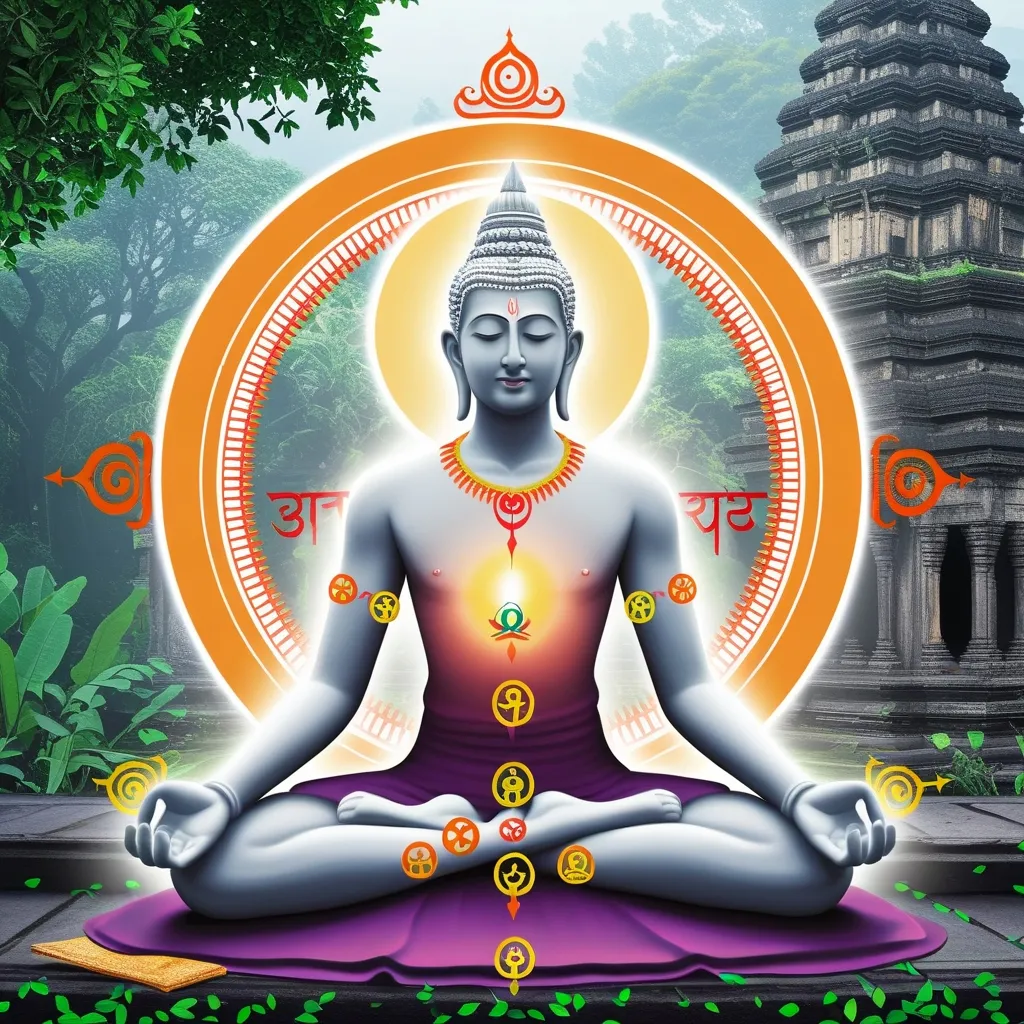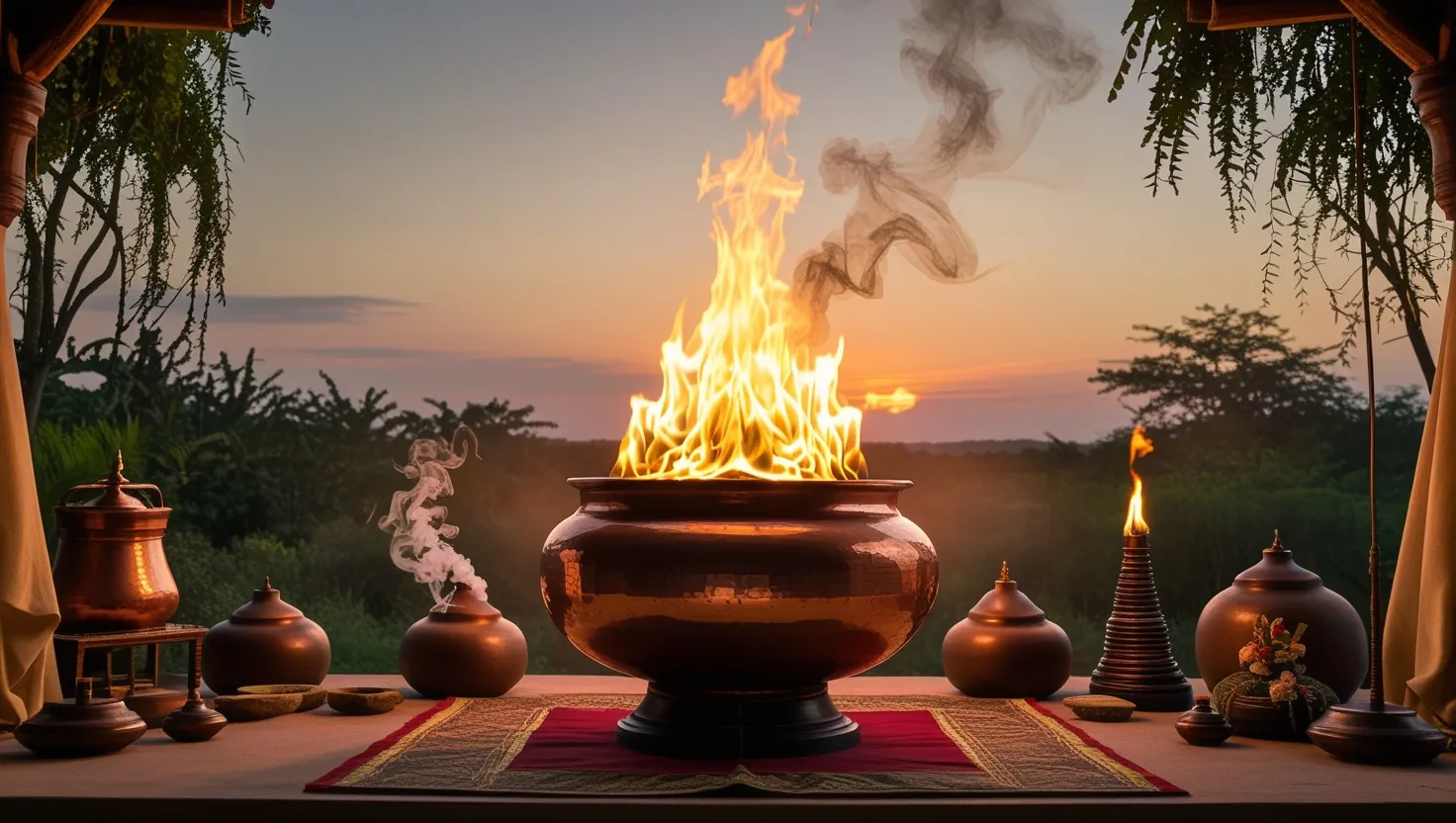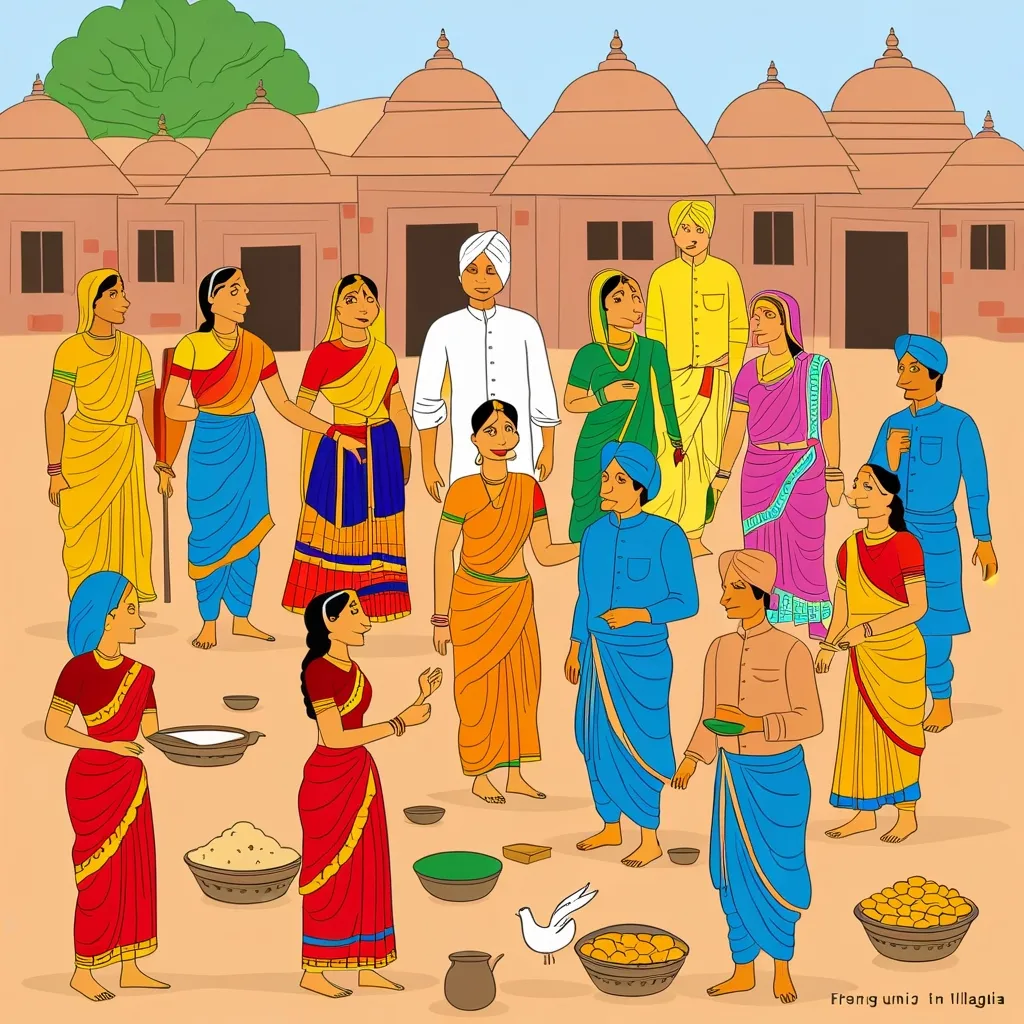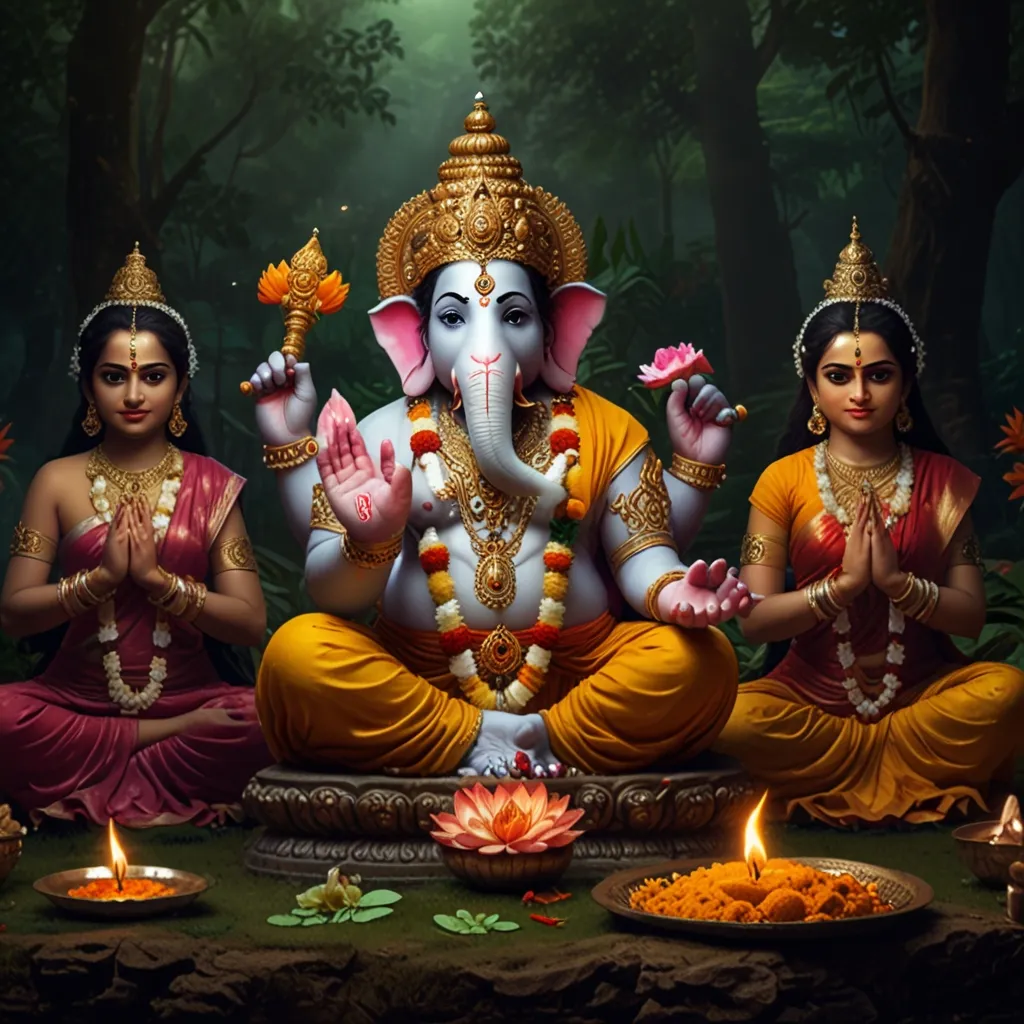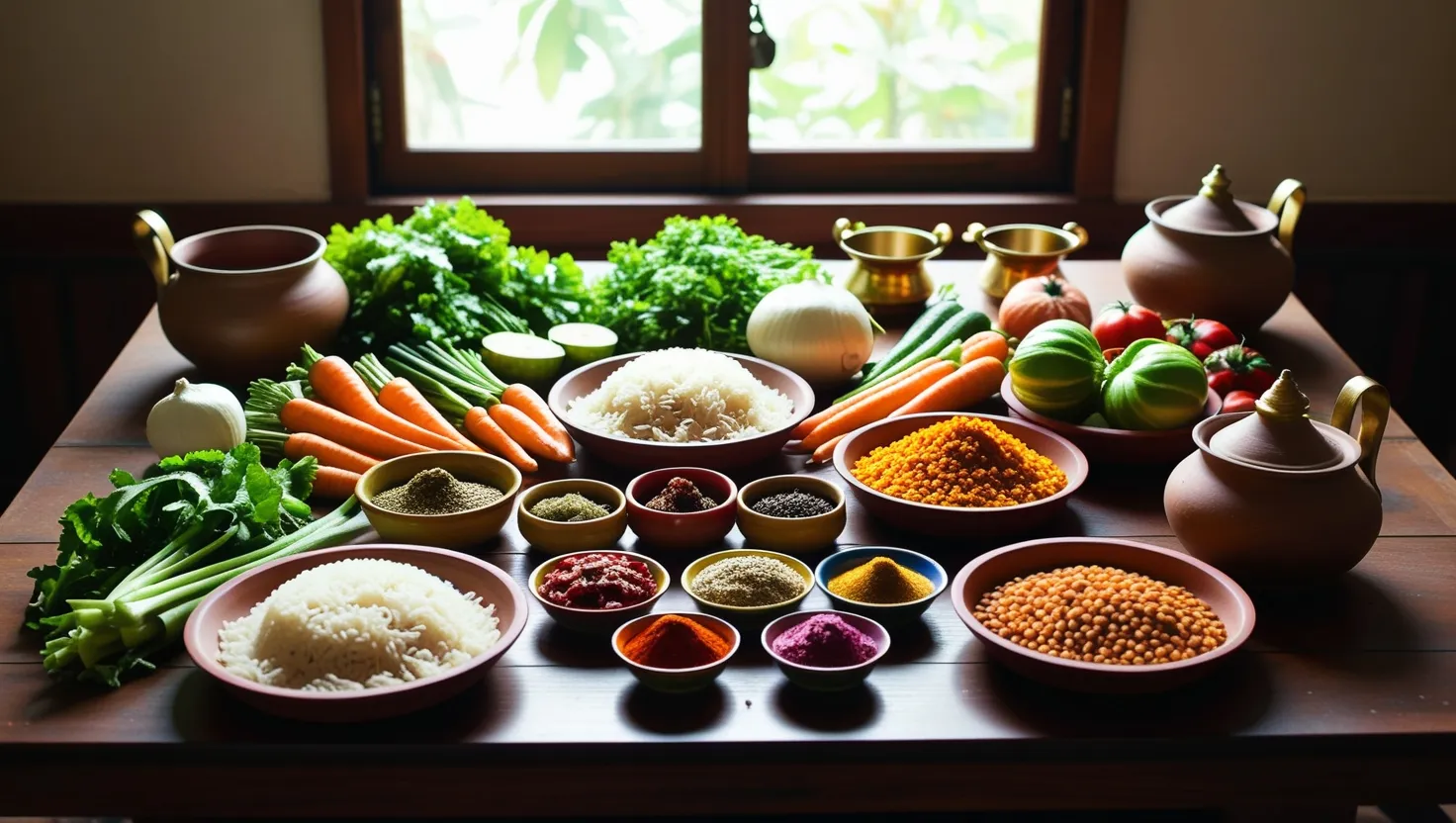Fasting in Hinduism: A Journey of Body and Soul
Fasting isn’t just skipping meals - it’s a whole vibe in Hinduism. It’s been around for ages, and it’s not going anywhere anytime soon. Think of it as a spiritual workout that’s been fine-tuned over thousands of years. It’s not about starving yourself; it’s about feeding your soul and giving your body a break.
So, why do Hindus fast? It’s like hitting the refresh button on your spiritual browser. You’re clearing out the clutter in your mind and making room for some divine connection. It’s pretty cool when you think about it - by controlling what goes into your body, you’re actually opening up your mind to some higher-level stuff.
Now, don’t think it’s all about rules and restrictions. Nah, it’s more like a personal journey. Some folks fast for their favorite gods - like, if you’re into Vishnu, you might skip meals on Saturdays. Shiva fans? They’re all about those Monday fasts. It’s not just about not eating; it’s about spending that time doing some soul-searching, maybe chanting a bit, or diving into some ancient texts.
Let’s break down the fasting game a bit. You’ve got your hardcore fasters who go all in - no food, sometimes not even water. That’s called Nirahara, and it’s not for the faint-hearted. Then there’s Phalahara, which is like fasting lite - you can munch on fruits and sip some milk. For the newbies or those who need a gentler approach, there’s Alpahara, where you can have some light eats like broken rice.
Here’s the kicker - fasting isn’t just good for your soul; it’s pretty awesome for your body too. Those ancient Ayurvedic texts weren’t kidding around when they said fasting could cure a bunch of stuff. Modern science is finally catching up, talking about how fasting can kick-start this thing called autophagy - it’s like spring cleaning for your cells. Pretty neat, right?
One of the big-deal fasts in Hinduism is Ekadashi. It happens twice a month, on the 11th day of each lunar cycle. Vishnu fans take this one seriously. It’s a 36-hour deal, starting from the evening before and wrapping up the next morning. During this time, grains are a no-go, but you can load up on fruits and veggies.
But wait, there’s more! Fasting isn’t just a solo gig. It’s often a family or community thing. Take Ganesh Chaturthi, for example. People fast together and then break it with some sweet treats like modaks. It’s like a spiritual party, bringing everyone together.
Now, let’s get personal for a sec. Imagine you’re a Hindu who’s decided to fast every Monday for Shiva. You wake up, skip breakfast, and instead of your usual routine, you spend some time in quiet meditation. Maybe you chant a bit, read some ancient wisdom. It’s like pressing pause on the chaos of life and tuning into something deeper. That’s the real deal of fasting - it’s not about what you’re giving up, but what you’re gaining.
Fasting in Hinduism isn’t just about the past; it’s totally relevant in our crazy, fast-paced world. Think about it - in a time when we’re constantly bombarded with information and junk food, taking a step back and fasting can be like a reset button for your body and mind. It’s not just about losing weight (though that can be a nice side effect); it’s about gaining clarity, focus, and maybe even a bit of inner peace.
Let’s talk about breaking a fast because that’s just as important as the fasting itself. After giving your digestive system a break, you can’t just dive into a feast. It’s like waking up a sleeping bear - you gotta do it gently. Start with some light fruits or veggies, then gradually work your way back to regular meals. Your body will thank you for the smooth transition.
Now, fasting isn’t just a Hindu thing. It’s like this universal language that crosses cultures and religions. From ancient Egyptians to modern-day Muslims, people have been fasting for all sorts of reasons. In Hinduism, it’s evolved over thousands of years, picking up wisdom from sages and ancient texts along the way.
But here’s the thing - fasting in Hinduism isn’t just about following some ancient rules. It’s about finding what works for you in your life today. Maybe you’re not ready for a full-on, no-food fast. That’s cool. Maybe you start by just cutting out junk food one day a week. Or maybe you decide to fast from negative thoughts (now that’s a challenge!). The point is, it’s your journey.
Let’s paint a picture here. Imagine it’s Navratri, this awesome nine-night festival. Families are coming together, some are fasting, others are preparing special meals for when the fast breaks. There’s a buzz in the air - a mix of spiritual energy and community vibes. Kids are learning about these traditions from their grandparents, keeping the cultural flame alive. It’s not just about not eating; it’s about connecting - with your roots, your family, and something bigger than yourself.
Fasting in Hinduism is like this amazing tapestry woven with threads of spirituality, health, culture, and personal growth. It’s not about depriving yourself; it’s about enriching your life. Whether you’re fasting to honor a deity, to cleanse your body, or just to challenge yourself, you’re tapping into a practice that’s been fine-tuned over millennia.
In the end, fasting in Hinduism is about balance. It’s about finding that sweet spot between nourishing your body and feeding your soul. It’s a practice that reminds us that we’re more than just physical beings - we’ve got this whole spiritual dimension that sometimes needs a little TLC.
So, next time you hear about someone fasting, don’t just think “Oh, they’re not eating.” Think about the journey they’re on - a journey of self-discovery, spiritual growth, and connection to something ancient and profound. And who knows? Maybe you’ll be inspired to give it a try yourself. After all, in this crazy world we live in, couldn’t we all use a little spiritual tune-up now and then?
Remember, fasting in Hinduism isn’t about following a strict set of rules. It’s about finding your own path to inner peace and understanding. It’s a practice that’s as old as the hills but as fresh as the morning dew. It’s a way to connect with your inner self, your community, and your cultural heritage. So whether you’re a seasoned faster or just curious about the practice, there’s a place for you in this ancient tradition. Who knows? Your next fast might just be the beginning of an amazing spiritual adventure.
